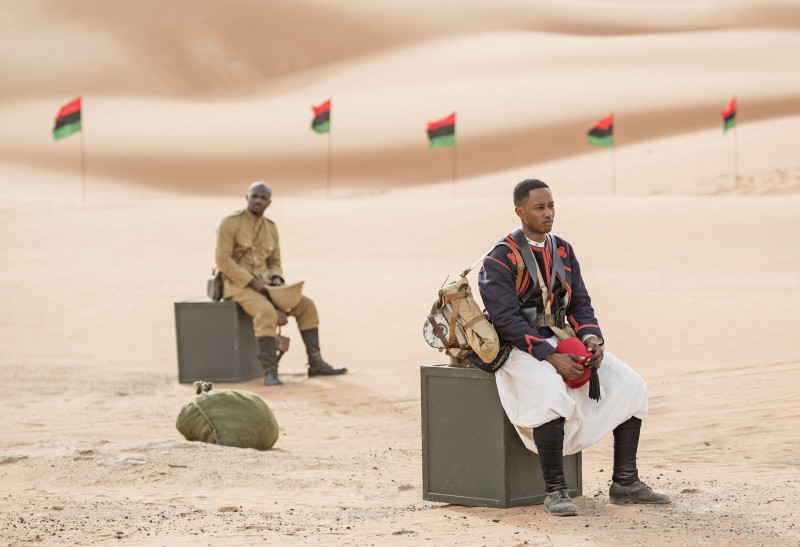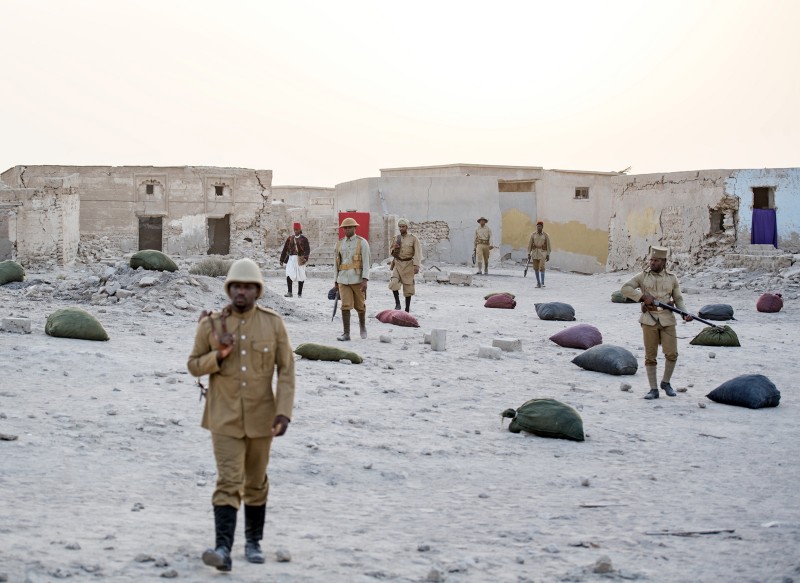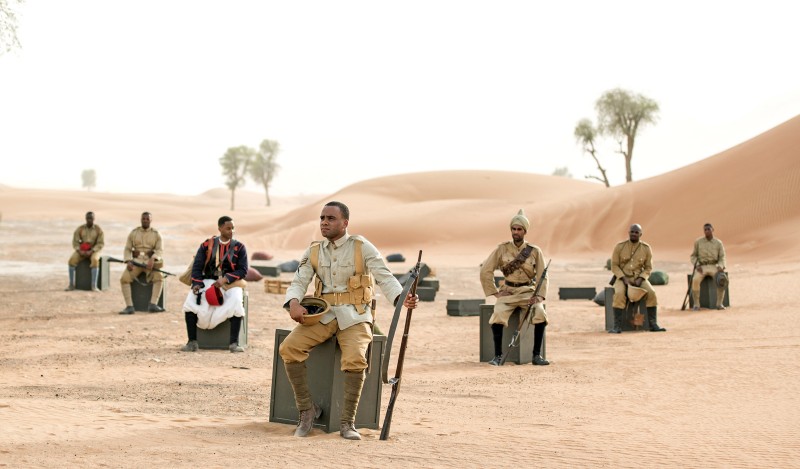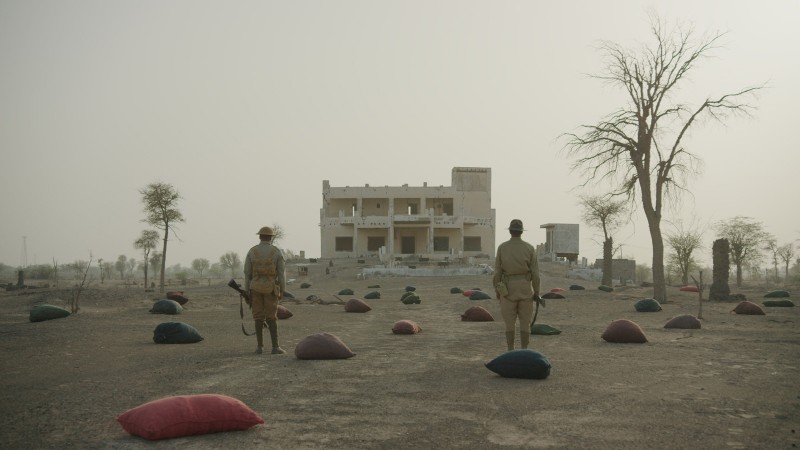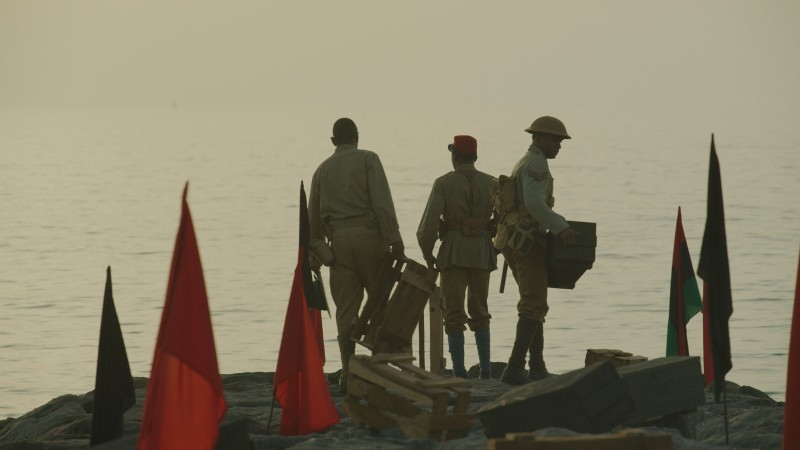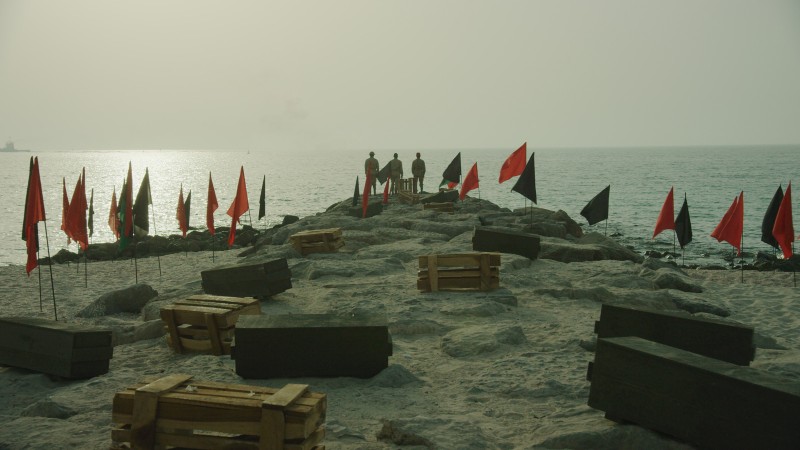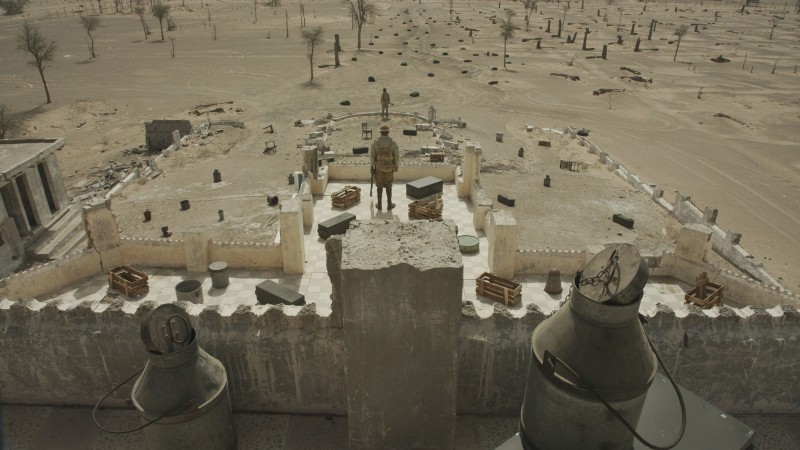John Akomfrah
Mimesis: African Soldier
Mimesis: African Soldier is a multimedia installation that remembers the millions of Africans who fought as soldiers or served as porters during the First World War. Combining mixed archival sources with newly filmed material, artistic reflections and tableaux reconstructions, this work by one of the UK’s most celebrated filmmakers reveals how the conflict shaped the recent history of Africa and the lives of its inhabitants. Projected onto three screens, Mimesis: African Soldier tells a story of vast scope and enormous courage. In doing so it commemorates and celebrates the African men and women whose suffering has been neglected for too long.
In 1914, both Britain and Germany controlled vast territories in Africa. Native men were enlisted to fight alongside Europeans on both sides, supported by an army of porters responsible for transporting food and equipment. Of the 100,000 deaths among British forces during the East Africa campaign, 90 per cent were porters and 45,000 came from Kenya alone.
The First World War was waged between empires that were global in their ambitions and reach. Between 1914 and 1918, millions of African and colonial soldiers served in long campaigns that spanned the whole of the African and European continents, contributing to victories throughout the First World War. These soldiers from British and French African territories were brought to Europe’s western front, where hundreds and thousands lost their lives alongside unknown, unheralded and undocumented African labourers and carriers. Mimesis: African Soldier seeks to commemorate these Africans and colonial soldiers who fought, served and died during the First World War.
Akomfrah says there is a ‘moral obligation’ to remember the men who gave their lives and to acknowledge that people from across Britain’s empire were involved. ‘There’s a way in which we talk about this country now which assumes it’s always been this fortress alone in the sea, doing its own fighting. But it’s not true. Absolutely untrue.’ ‘And to remind people of that, it’s not about causing trouble or making mischief, It’s simply stating some of the historical facts that allow people to understand why we are where we are now.’
Following its presentation as part of 14-18 NOW, this work was acquired jointly by Glasgow Museums and Glasgow Museum of Modern Art with Bristol Museum and Art Gallery, with support from the Art Fund.
About the artist
John Akomfrah is a hugely respected artist and filmmaker, whose works are characterised by their investigations into memory, post-colonialism, temporality and aesthetics and often explores the experiences of migrant diasporas globally. Akomfrah was a founding member of the influential Black Audio Film Collective, which started in London in 1982 alongside the artists David Lawson and Lina Gopaul, who he still collaborates with today. Their first film, Handsworth Songs (1986) explored the events surrounding the 1985 riots in Birmingham and London through a charged combination of archive footage, still photos and newsreel. The film won several international prizes and established a multi-layered visual style that has become a recognisable motif of Akomfrah’s practice. Other works include the three-screen installation The Unfinished Conversation (2012), a moving portrait of the cultural theorist Stuart Hall’s life and work; Peripeteia (2012), an imagined drama visualising the lives of individuals included in two 16th century portraits by Albrecht Dürer and Mnemosyne (2010) which exposes the experience of migrants in the UK, questioning the notion of Britain as a promised land by revealing the realities of economic hardship and casual racism.
Co-commissioned by 14-18 NOW, New Art Exchange, Nottingham and Smoking Dogs Films. With additional support from Sharjah Art Foundation.
